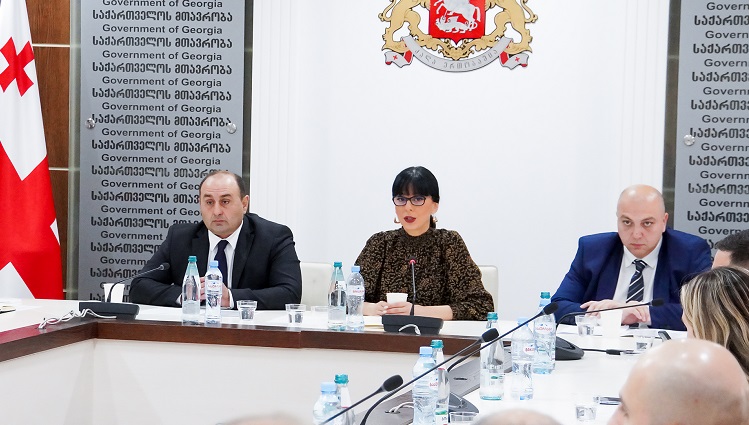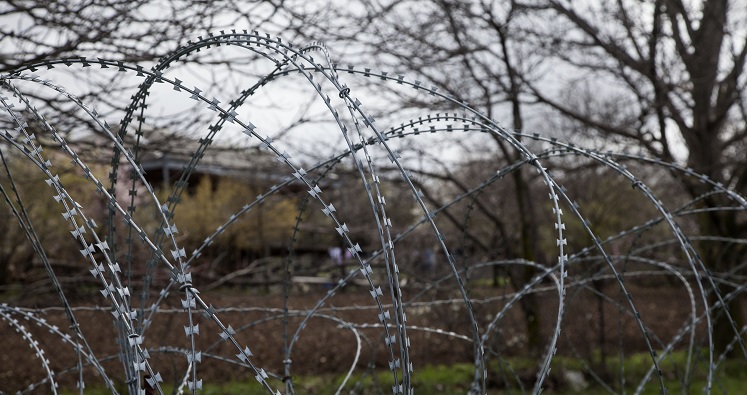Gov’t vows to cover heating, higher education costs for conflict-affected population

The 25th session of the government commission - formed in 2013 to meet the needs of the conflict-affected population living in or adjacent to the Russian-occupied Abkhazia and Tskhinvali regions, held a meeting on Tuesday. Photo: reconciliation ministry press office
The Georgian state ministry for reconciliation and civil equality on Tuesday said the government would cover home heating expenses in the winter for the country’s conflict-affected population and continue to fund studies for students living behind and near the occupation line for the 2022-2023 academic year.
- Georgian PM raises Russian occupation at UN, calls on democracies to “act as one for freedom, peace”
Following the 25th session of the government commission - formed in 2013 to meet the needs of conflict-affected population living in or adjacent to the Russian-occupied Abkhazia and Tskhinvali (South Ossetia) regions - minister Tea Akhvlediani said the body had also discussed the recent initiative of prime minister Irakli Garibashvili on restoration of damaged houses in the central Georgian village of Zardiaantkari, adjacent to Tskhinvali region.
We have discussed measures, current activities and concrete plans being implemented by state agencies and local authorities in a bid to restore damaged houses in the village, on the initiative of the prime minister. The support of the conflict-affected population is among the government’s top priorities”, Akhvlediani said.
 Russia recognised the "independence" of Georgia’s occupied Abkhazia and Tskhinvali (South Ossetia) regions in August 2008, after the Russia-Georgia war. Photo: Nino Alavidze/Agenda.ge.
Russia recognised the "independence" of Georgia’s occupied Abkhazia and Tskhinvali (South Ossetia) regions in August 2008, after the Russia-Georgia war. Photo: Nino Alavidze/Agenda.ge.
Irakli Karseladze, the minister of regional development and infrastructure, noted that with the coordination of his body, a total of 168 projects with the total cost of ₾76.2 million ($27 mln) had been designated for the villages adjacent to the occupation line since January, with “many of them” already completed.
He also said the projects included renovation of road infrastructure and water supply systems, as well as construction and renovation of kindergartens and schools.
Stressing the importance of the commission’s work, the officials said since its creation it had ensured a number of projects for gas and water provision, education funding, healthcare and agricultural programmes, entrepreneurship support, cultural support and more for the conflict-affected communities.
- Russia recognised the independence of Georgia’s occupied Abkhazia and Tskhinvali (South Ossetia) regions in August 2008, following the Russia-Georgia war that month. Only four other countries – Venezuela, Nicaragua, Nauru and Syria – have since shared Russia’s position regarding the occupied Georgian territories’ status, with the rest of the international community maintaining that the regions are parts of Georgia under Russian occupation.
 Tweet
Tweet  Share
Share